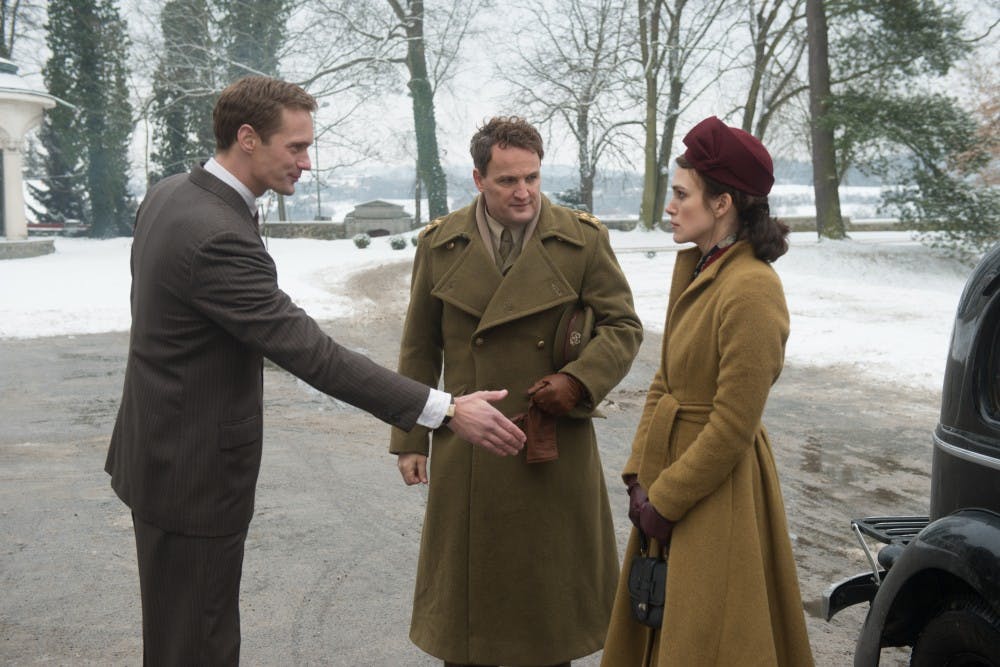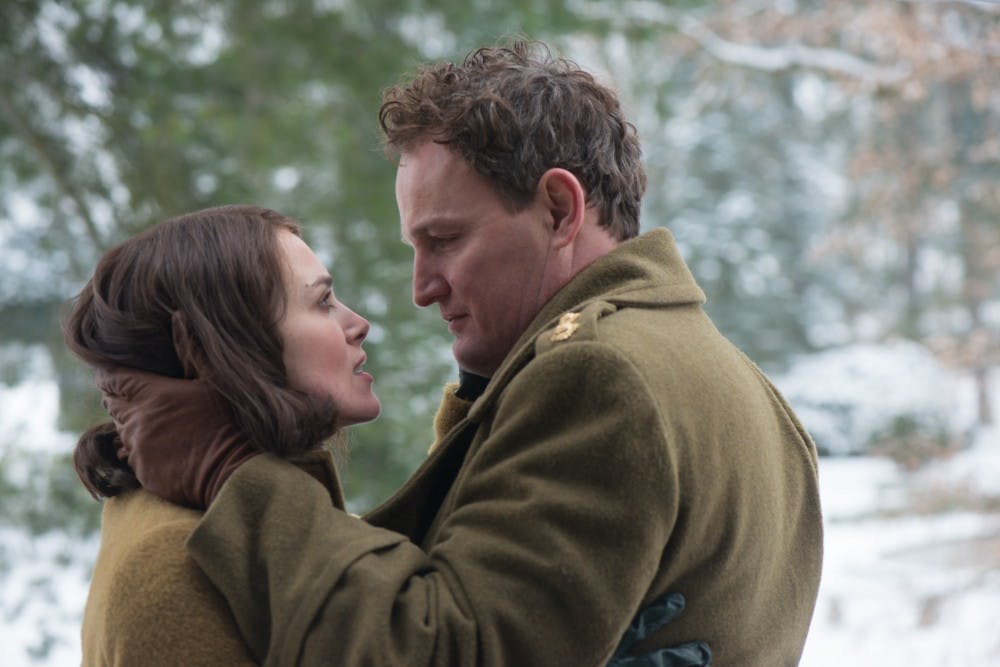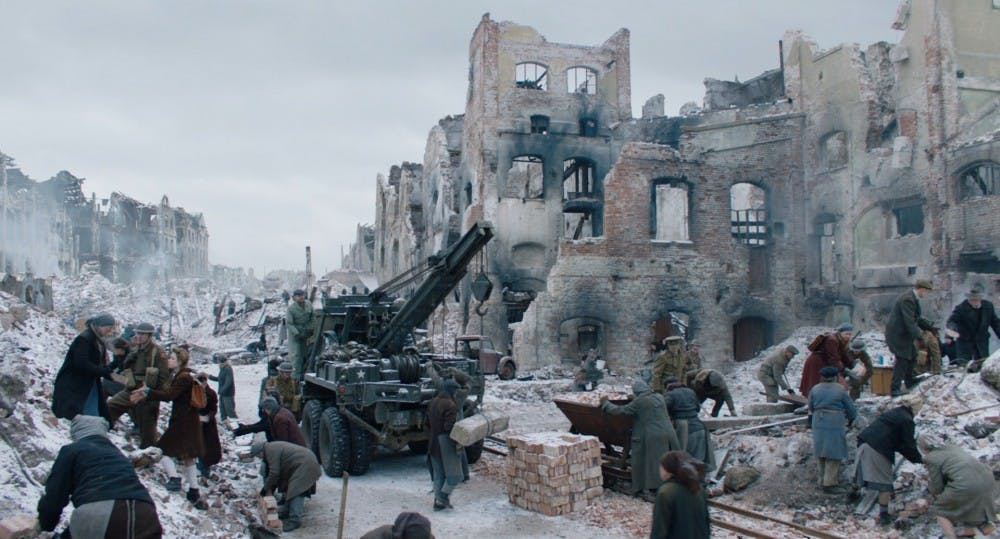I wasn’t entirely sure what to expect when I settled into my seat at the Ritz at the Bourse to see The Aftermath. I hadn’t seen a trailer and I hadn’t read the book, but I knew that Keira Knightley starred in the film alongside Alexander Skarsgård and Jason Clarke, so I had high hopes.
I was completely disappointed.
The film gets off to a good start with beautiful overhead shots of a train bearing Rachael Morgan (Keira Knightley) chugging into the station of Hamburg, Germany. Similar shots capture the bombed–out, wintry city, and this, alongside a couple of other more explicit indications, clues us into the setting: the “aftermath” of World War II in Germany.

Rachael meets her husband, Lewis (Jason Clarke), and it is clear in the flickering eyebrows and the hesitant hug that something is amiss. The feeling of distance grows when he tells her that they will be living with a German host, the widower Stefan (Alexander Skarsgård) and his daughter, in his mansion. The two parties agree to separate into “zones” of the house, although Lewis is often absent to complete the work assigned to him by the British military. With the distance between Rachael and her husband, and the availability of the handsome Stefan, the narrative of Rachael and Stefan’s attraction and the subsequent themes of passion and betrayal become only too predictable.
The film began with promising acting and mise–en–scène, but the separation of the two families into “zones,” with German Stefan quartered on the upstairs floor and the British Morgans inhabiting the first floor, is entirely too reminiscent of a twisted version of Romeo and Juliet. The movie is set only a short five months after the Allied victory—after the liberation of prisoners from concentration camps that killed millions—and the use of the Holocaust as a backdrop for a forbidden love story is crude and entirely tasteless.

What’s worse, we never really find out what Stefan’s role in the war was. The writers try to make him palatable by giving him a physical pass that clears him of Nazi affiliations—Skarsgård’s puppy dog eyes certainly add to the effect—but what was he doing in Germany for six years, dressed with his blond hair and grand estate, as the Nazis persecuted millions of people? His direct role in the war is questionable at best.
The Aftermath is uncomfortable and insensitively uses World War II merely to stage a hackneyed story of Romeo and Juliet. That’s not to say recycling Romeo and Juliet is a bad thing—West Side Story, 10 Things I Hate About You, and Warm Bodies are all wonderful movies—but to essentially use the suffering caused by World War II just to recite a boring and predictable confusion of passions is just flat–out wrong.

